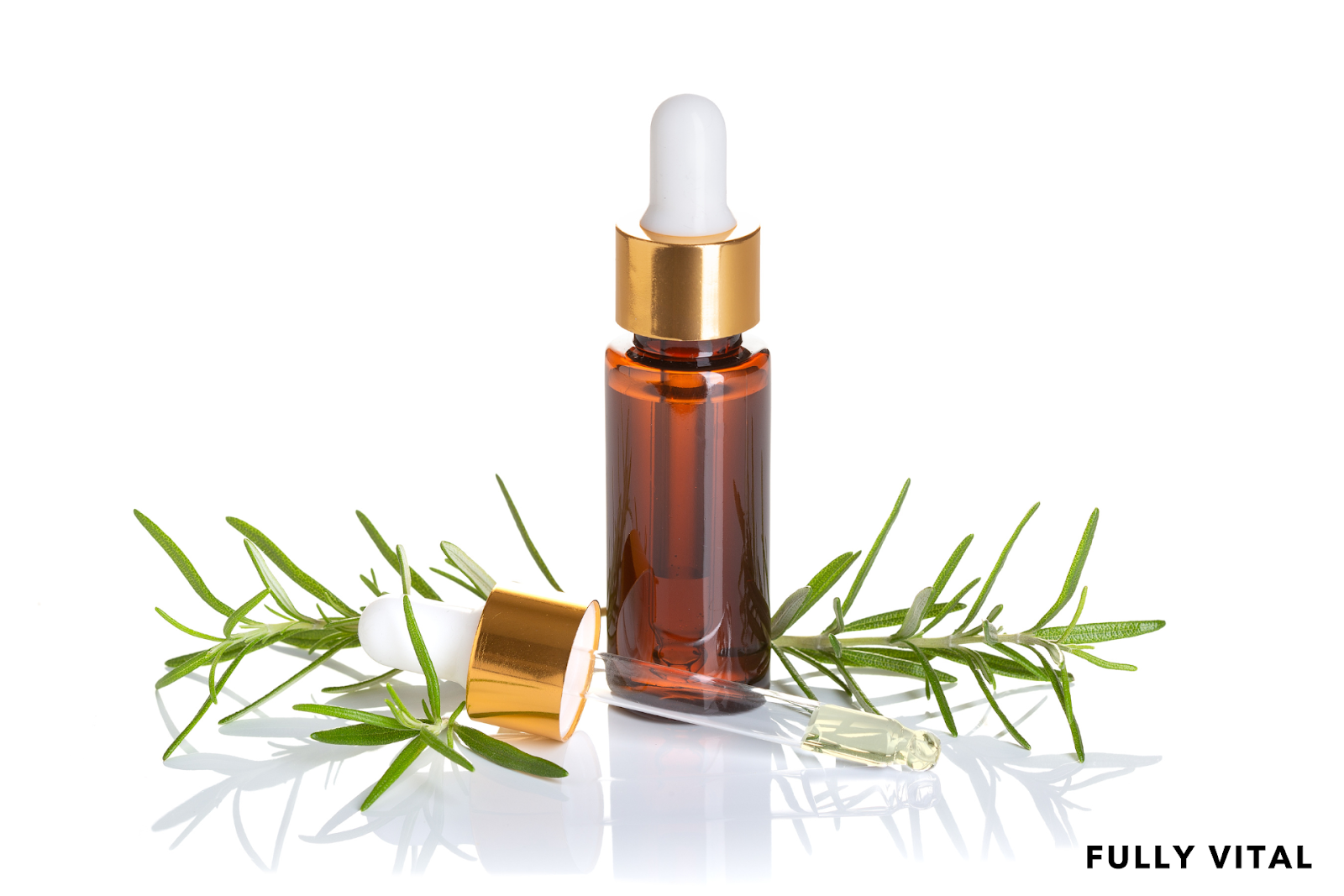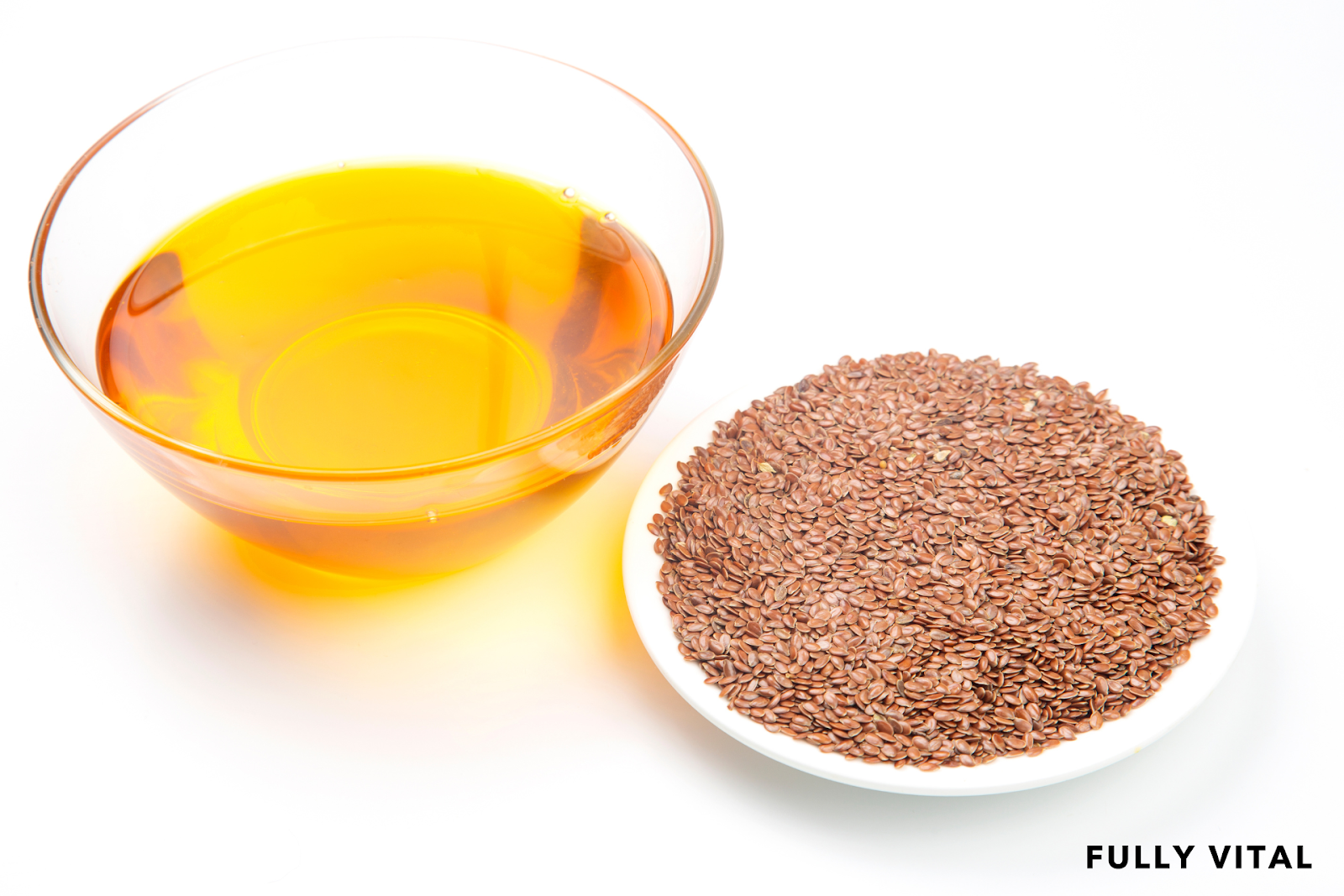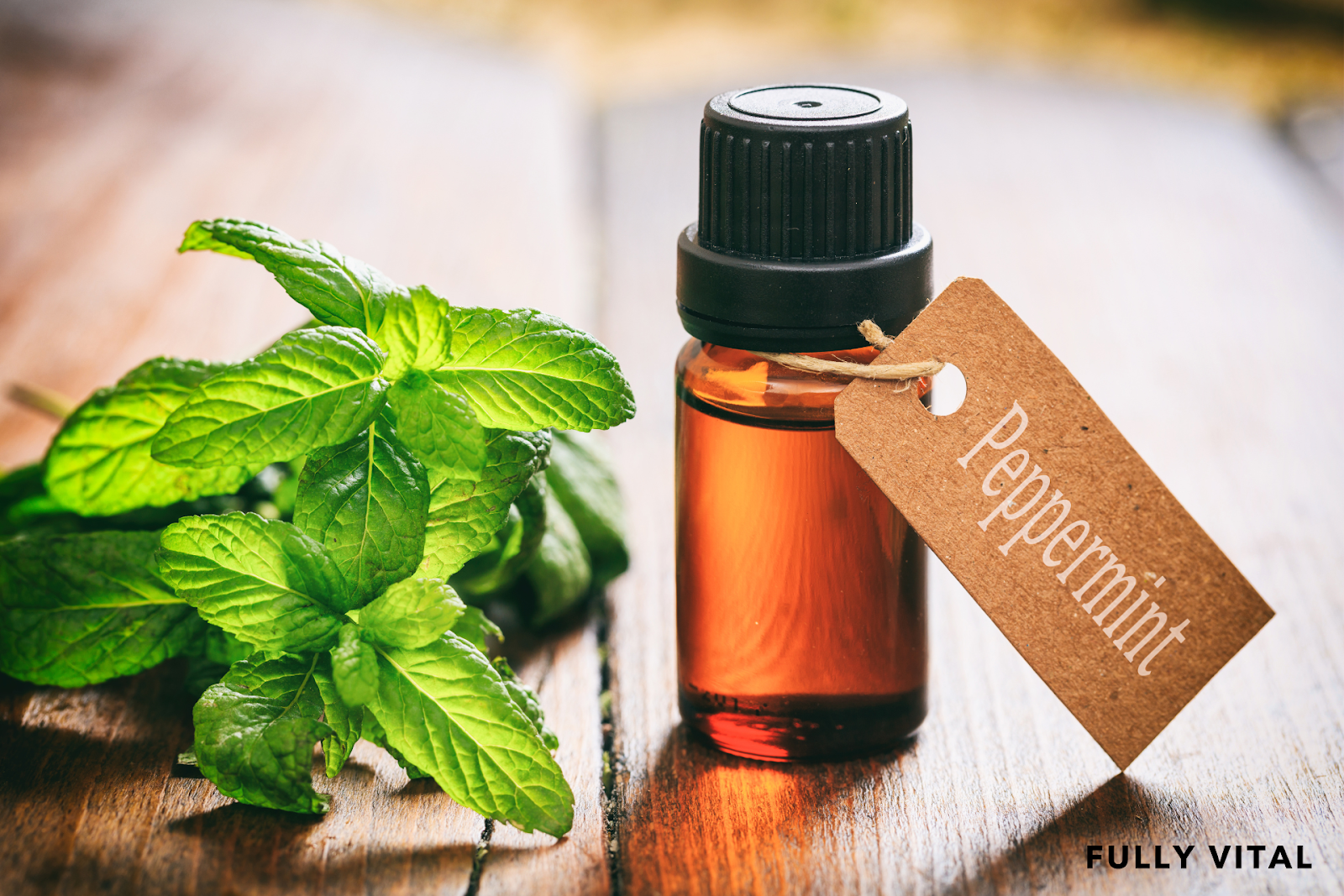
Rosemary Oil: A Scented Solution to Thinning Hair
When struggling with thinning hair, it is natural to seek out solutions that promote hair growth and health.
Among the abundance of hair care remedies that flood the market, there stands a noteworthy option – rosemary oil.
Its popularity isn't baseless; this natural essence is backed by both historical anecdote and mounting scientific evidence.
Rosemary oil, derived from the aromatic herb Rosmarinus officinalis, has been revered through ages for its culinary and therapeutic prowess.
It’s the essence of choice for many looking to enrich their hair care regimen.
Why rosemary oil? That’s because this herbal oil is believed to potentially improve hair thickness and growth, making it a candidate worth considering for those facing the challenge of thinning hair.
This article doesn't just skim the surface; it aims to dive into the nuances of how rosemary oil might benefit hair health.
It will unravel what makes rosemary oil special, how it compares to other treatments, and what to be mindful of when using it.
Let's embark on this informative journey to understand if rosemary oil could be your ally in the pursuit of fuller, healthier hair.

I LOVE MY HAIR NOW
FullyVital hair serum and hair vitamins made tremendous improvements in my hair. I truly love my hair now.
Shop Hair ProductsWhat Is Rosemary Oil And Its Significance In Hair Care?
Rosemary oil is not just your ordinary kitchen herb; it's a potent essential oil distilled from the flowering tops of the rosemary plant, Rosmarinus officinalis.
This perennial herb, recognizable by its needle-like leaves and distinctive fragrance, has a lineage that runs deep into history, used by various cultures for its medicinal properties.
The Source and Composition of Rosemary Oil
The effectiveness of rosemary oil can be attributed to its rich composition of bioactive compounds.
Cineole, camphor, and alpha-pinene are amongst the primary constituents that have been studied for their health benefits.
These components are said to have invigorating effects on the scalp and hair follicles, potentially stimulating hair growth and restoring vitality to lackluster locks.1
Historical Use in Hair Care
Long before the advent of modern hair care products, rosemary was already a celebrated element in traditional remedies.
Ancient documentation cites its use in the Mediterranean region for its ability to darken and strengthen hair.
Its application extended beyond aesthetics; its antiseptic properties made it valuable for maintaining scalp wellness.
How Can Rosemary Oil Improve Hair Health?
Understanding Thinning Hair
Hair thinning can stem from various factors, including genetics, hormonal changes, nutritional deficiencies, and stress.
Follicles, the tiny pockets on our scalp from which hair grows, can shrink or become dormant, leading to visibly thinner hair.
The search for hair health improvements typically centers around finding ways to revitalize these follicles and promote a healthy scalp environment.
Rosemary Oil and Hair Growth
The properties of rosemary oil that are thought to be beneficial for hair health include anti-inflammatory effects, the ability to stimulate blood circulation to the scalp, and its role as a natural antioxidant.
Improved circulation can nourish hair follicles with more oxygen and nutrients, potentially resulting in stronger hair growth.
Additionally, its antioxidant action may help protect hair and scalp from damage caused by environmental stressors.
Scientific Support for Rosemary Oil in Hair Care
Emerging scientific research lends credence to the traditional claims about rosemary oil.
Some studies suggest that the oil can compete with commercial hair growth products.
For example, one study found that the use of rosemary oil was as effective as minoxidil, a common hair growth treatment, in improving hair count after six months of consistent application.2
Moreover, it was associated with less scalp itching, suggesting a gentler alternative for those with sensitive skin.
It’s important, however, to recognize that research is ongoing, and more robust data would strengthen these early findings.

What Are The Benefits Of Rosemary Oil For Hair?
Enhancing Hair Growth and Thickness
The most celebrated benefit of rosemary oil is its potential to enhance hair growth and promote a fuller head of hair.
By improving cellular generation and increasing blood flow, rosemary oil might encourage your follicles to kick into gear and produce hair more robustly.
This is especially meaningful for those battling thinning hair, who may observe an improvement in hair thickness and scalp coverage with regular use.
Improving Scalp Health and Circulation
A healthy scalp is the bedrock of healthy hair, and that’s another area where rosemary oil could make a significant impact.
Its anti-inflammatory and antiseptic properties help to soothe the scalp, reduce dandruff, and minimize the occurrence of scalp acne.
Additionally, its ability to stimulate circulation ensures that hair follicles are well-nourished, creating an optimal environment for hair growth.3
How Does Rosemary Oil Compare To Other Hair Growth Treatments?
Rosemary Oil vs. Minoxidil
Minoxidil is an over-the-counter medication widely known for its hair regrowth properties, often recommended for conditions like androgenetic alopecia.
While rosemary oil has garnered attention for producing comparable results in some studies, it may also offer the advantage of fewer side effects.
Minoxidil users sometimes report issues like scalp irritation, which appears to be less common with rosemary oil applications.
This can make rosemary oil a preferred choice, especially for those with sensitivities to chemical treatments.
Natural Alternatives and How They Stack Up
There's no shortage of natural remedies touted for hair growth, from pumpkin seed oil to peppermint oil.
Rosemary oil, however, stands out for its combination of anecdotal backing and scientific attention.
Though research is still developing and more rigorous studies are needed, the current evidence suggests that rosemary oil can be a potent ally for improving hair health compared to other natural options, without the risk of harsh chemical components.
Are There Any Side Effects Or Concerns With Using Rosemary Oil?
Common Concerns with Essential Oils
Rosemary oil, like all essential oils, is highly concentrated and should be used with care.
Direct application of pure rosemary oil to the scalp can lead to irritation for some individuals, especially those with sensitive skin.
It's generally advised to dilute the oil with a carrier oil, such as jojoba or coconut oil, before use.
Furthermore, a patch test is recommended to ensure no allergic reactions occur.
Who Should Avoid Rosemary Oil
While rosemary oil is suitable for many users, it's not for everyone.
Pregnant and breastfeeding women may be advised to avoid its use as a precaution.
Those with high blood pressure or epilepsy should also exercise caution, as high concentrations of rosemary oil have been found to affect these conditions.
Lastly, due to its stimulating effects, individuals with certain scalp conditions should speak with a healthcare provider to see if rosemary oil is an appropriate choice.

What Role Might Rosemary Oil Play In The Future Of Hair Care?
As the landscape of personal care continues to shift towards more natural and holistic approaches, rosemary oil may become an increasingly prominent player in the realm of hair care solutions.
The increasing consumer interest in sustainable, plant-based products, coupled with ongoing research into rosemary oil's potential benefits, suggests that it will continue to grow in popularity.
The demand for ingredients with a transparent, ethically-sourced background is on the rise, and rosemary oil often fits this bill, being a product that can be organically cultivated and harvested with minimal environmental impact.
Explore the Future of Hair Care with Fully VitalUnlock the mysteries to refreshed and age-resistant locks with Fully Vital's state-of-the-art hair growth products. Our goal is to equip you with potent, scientifically supported solutions that decelerate and potentially reverse the aging process of your hair. Revitalize Your Locks: Bid farewell to dandruff and welcome healthier hair. Our products are meticulously designed to enhance scalp health, promoting vibrant hair growth. Scientifically Supported Formulas: Supported by extensive research, our hair care solutions leverage the effectiveness of proven ingredients to counteract the signs of aging and restore your hair's innate vitality. Confidence in Every Strand: With Fully Vital, you'll embrace a renewed sense of confidence as you witness your hair undergo a transformation into a crowning glory radiating health and beauty. Unleash the potential of your hair today and embark on a journey toward a more vibrant, youthful, and healthier version of yourself. |
Final Thoughts On Rosemary Oil
Navigating the journey to healthier hair can be overwhelming, especially with a multitude of products and remedies promising results.
Rosemary oil stands out amid the noise, not only for its rich herbal legacy but for its potential to nurture and renew the scalp and hair.
While it isn't a miracle cure, its beneficial properties could make a real difference for those seeking a natural approach to hair care.
Whether you're integrating rosemary oil into your regimen as a preventive measure or looking to address specific issues like thinning hair, patience and consistent application are key.
By choosing high-quality, pure rosemary oil and using it judiciously, you may find that this time-honored essence can enrich your hair’s health and vitality.
Remember that every individual's hair journey is unique, and what works for one may not work for another.
As with any natural therapy, it's essential to listen to your body and consult with a healthcare provider when in doubt.
With its promising attributes and ongoing research, rosemary oil is poised to continue making waves well into the future of hair care.
Check out our recent blogs:
- Hair Cycle Explained: How To Grow Longer Hair
- Follicular Unit Extraction: Unveiling The Path To Natural Hair Growth
- Postpartum Alopecia: Understanding, Treatment, And Management
Frequently Asked Questions About Rosemary Oil
Is rosemary oil safe for all hair types?
Rosemary oil is safe for most hair types when used correctly.
However, individuals with sensitive skin or allergies should perform a patch test before using it more broadly.
Can rosemary oil reverse baldness?
There is no conclusive evidence that rosemary oil can reverse baldness.
However, some studies suggest it may help with hair regrowth and prevent further hair loss when used as part of a regular hair care routine.
How long does it take for rosemary oil to affect hair growth?
The effects of rosemary oil on hair growth vary by individual, but users may need to apply it consistently for at least a few months to notice improvements.
Does the smell of rosemary oil linger in the hair?
A: Rosemary oil has a distinct aroma that can remain in the hair after application, but it typically fades within a few hours or after washing.
Can rosemary oil be used with other hair care products?
Yes, rosemary oil can be combined with other hair care products like shampoos and conditioners, or mixed with other essential or carrier oils for added benefits.
Should rosemary oil be rinsed out after application?
Rosemary oil should typically be diluted with a carrier oil and can be left in the hair for a few hours or overnight before rinsing, depending on personal preference and hair type.
Can rosemary oil protect hair from environmental damage?
Its antioxidant properties may help protect hair from environmental stressors like sun exposure and pollution, though it should not replace other forms of protection like UV-blocking products.
How do you store rosemary oil to maintain its potency?
Store rosemary oil in a cool, dark place away from direct sunlight, and ensure the cap is tightly sealed to maintain its therapeutic properties.
Can I make my own rosemary oil at home?
While not as potent as the steam-distilled variety, you can make a homemade infusion by steeping dried rosemary leaves in a carrier oil for several weeks.
Are there any diets or nutrients that can enhance the effects of rosemary oil on hair growth?
A balanced diet rich in protein, vitamins, and minerals supports overall hair health and can complement the benefits of topical rosemary oil treatments.
Sources:
- Salehi, B., Upadhyay, S., Erdogan Orhan, I., Kumar Jugran, A., L.D. Jayaweera, S., A. Dias, D., Sharopov, F., Taheri, Y., Martins, N., Baghalpour, N., C. Cho, W., & Sharifi-Rad, J. (2019). Therapeutic Potential of α- and β-Pinene: A Miracle Gift of Nature. Biomolecules, 9(11), 738. https://doi.org/10.3390/biom9110738
- Panahi, Y., Taghizadeh, M., Marzony, E. T., & Sahebkar, A. (2015). Rosemary oil vs minoxidil 2% for the treatment of androgenetic alopecia: a randomized comparative trial. Skinmed, 13(1), 15–21. https://pubmed.ncbi.nlm.nih.gov/25842469/
- Davis, M. G., Piliang, M. P., Bergfeld, W. F., Caterino, T. L., Fisher, B. K., Sacha, J. P., Carr, G. J., Moulton, L. T., Whittenbarger, D. J., & Schwartz, J. R. (2021). Scalp application of antioxidants improves scalp condition and reduces hair shedding in a 24-week randomized, double-blind, placebo-controlled clinical trial. International Journal of Cosmetic Science, 43 Suppl 1, S14–S25. https://doi.org/10.1111/ics.12734








